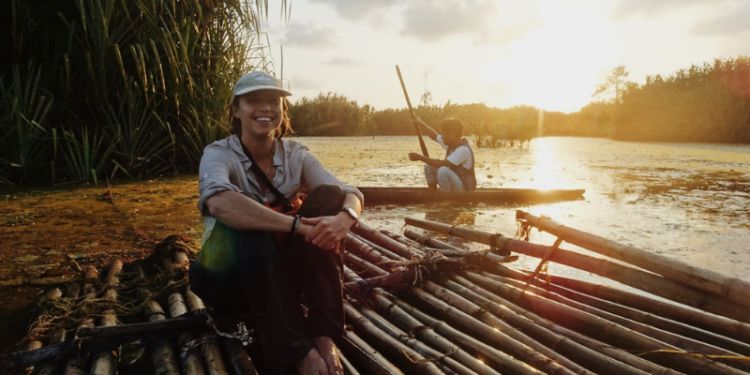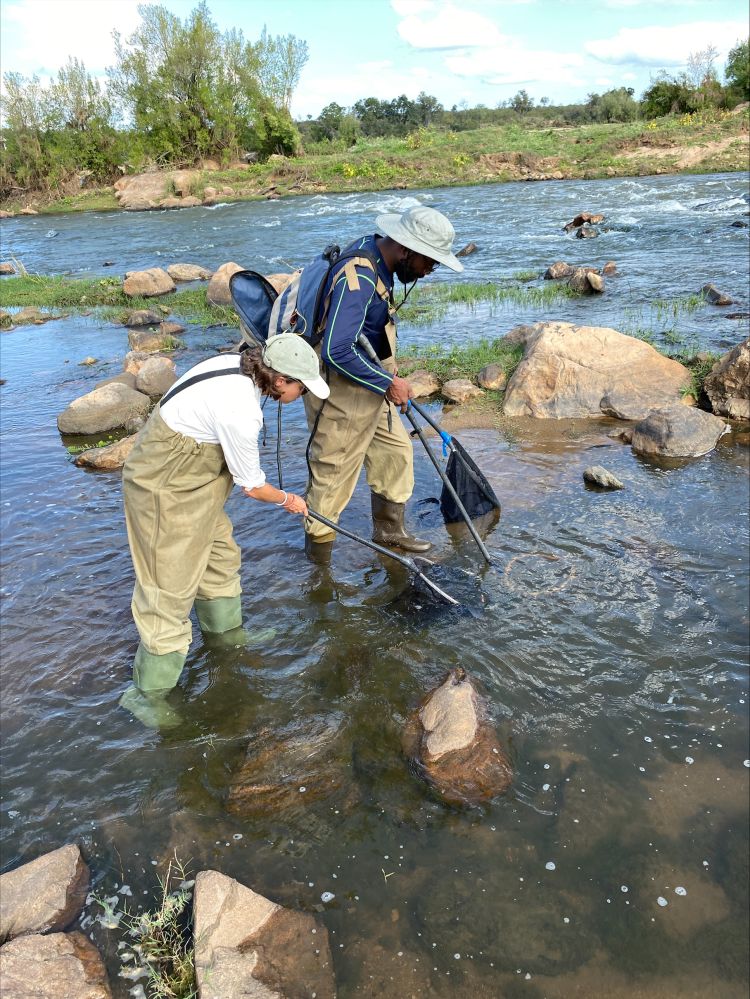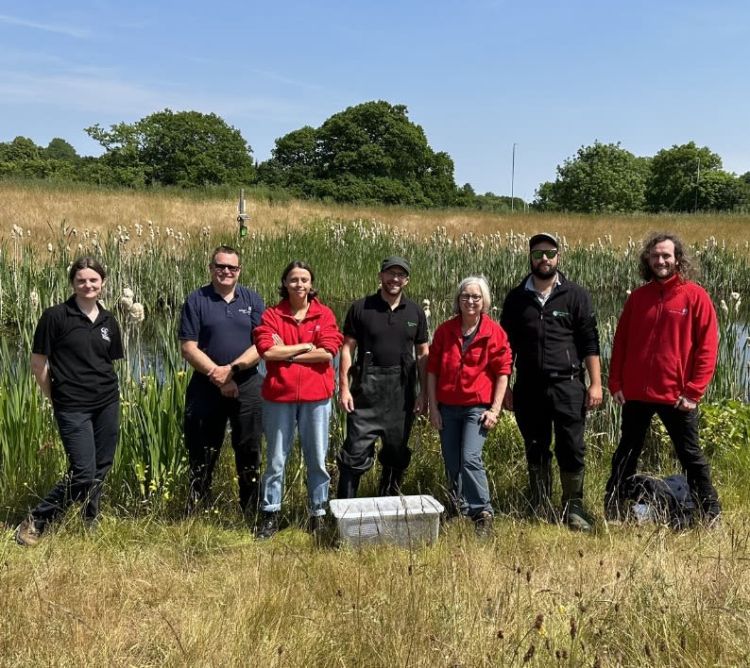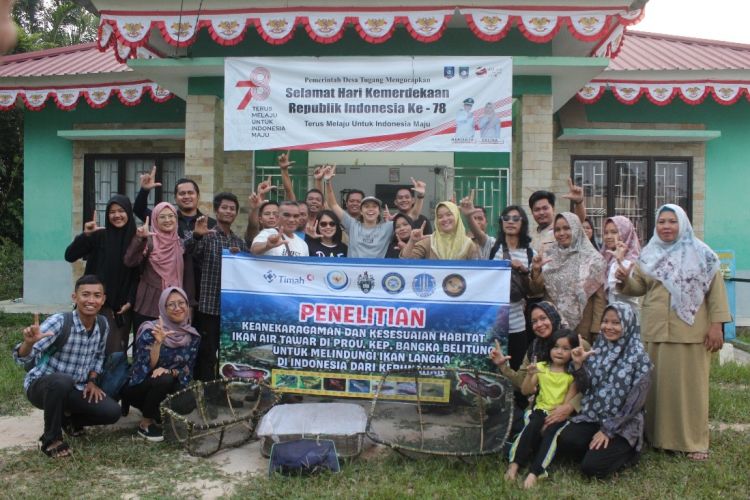Biology Future Leader tackles global challenges

Dr Josie South, Researcher in the School of Biology, has received a prestigious fellowship to support her research in mitigating the damage from invasive species.
The aim of the Future Leaders Fellowship is to develop the next wave of world-class research and innovation leaders in academia and business.
The fellowships are funded by UK Research and Innovation (UKRI) and were announced on Monday 4 December by Professor Dame Ottoline Leyser, UKRI Chief Executive, who said:
UKRI’s Future Leaders Fellowships provide researchers and innovators with long-term support and training, giving them the freedom to explore adventurous new ideas, and to build dynamic careers that break down the boundaries between sectors and disciplines.
The fellows announced on Monday illustrate how this scheme empowers talented researchers and innovators to build the diverse and connected research and innovation system we need to shorten the distance between discovery and prosperity across the UK.
The 75 new Future Leaders Fellows will benefit from £101 million to tackle major global issues and to commercialise their innovations in the UK.
Dr South joins Dr Jessica Baker, Faculty of Environment and Dr Mark Hopkins, School of Food Science and Nutrition which takes the total number of Future Leaders Fellowships at Leeds to 21.
This project will not only support my research career in aquatic invasion ecology but it will also vastly improve the capacity to address associated global challenges related to invasive species such as conservation, food security and sustainable livelihoods.
The success of this programme will also provide a platform to launch the creation of the International Freshwater Invasion Network which leverages collaborative and interdisciplinary expertise to solve challenges beyond the scope of this Fellowship.
Professor Nick Plant, Deputy Vice-Chancellor: Research and Innovation said: “The Fellowship projects led by Jessica, Mark and Josie reflect the breadth of our world-class research undertaken at Leeds and the remarkable talent we have working here whose impactful research addresses global challenges.
“The Future Leaders Fellowship provides the time and flexibility for researchers to tackle ambitious research projects and contribute to maintaining the UK’s status to be at the forefront of cutting-edge research and innovation.”
Tackling invasive species
Invasive species are a major environmental, economic, and societal threat to our planet.
They can negatively alter the ecology of our waters, affect factors such as nutrients and sedimentation and change the physical characteristics of an ecosystem. They can also feed on native species, compete for food and habitat, as well as spread disease.
This imbalance can have devastating consequences, such as loss of biodiversity, and extinction of native species.
Dr South’s project, titled “Upscaling Invasion Impact Prediction’, aims to better predict the impact of invasive species. It will particularly focus on freshwater species, as they are often overlooked in conservation policy and are at dire risk of extinction.
Her fellowship will work to unravel the mechanisms that drive these negative impacts, which will aid global and local proactive management and prevention.
The work will include ambitious geographically coordinated experiments, with partners from seven countries.
Building on research
Dr South is involved in various projects studying invasive species such as supporting the relocation of vulnerable white-clawed crayfish in Yorkshire, preventing the spread of red clawed crayfish in Kruger National Park, conservation of critically endangered fish in Indonesia, and exchanging knowledge through multidisciplinary networks such as water@leeds and the Horizons Institute.

Dr South surveying aquatic communities in the Kruger National Park, South Africa

Dr South (third from left) at the endangered crayfish release at University of Leeds Bodington Pond

Dr Josie South (centre) and team from Universitas Airlangga, Universitas Bangka-Belitung and NGO The Tangokkers in Indonesia after outreach events and fish surveying on Bangka Island
This year, she also won the Water Woman Award for Early Career from water@leeds for her research excellence.
The award was based on two equally weighted criteria: the nature of the achievement plus its potential for empowering and inspiring other women into following their example.
Dr South added:
Working well with people, enabling full participation of a team and valuing contributions of each team member is the biggest lesson I’ve learnt, and would be the main thing I would recommend to any young female researcher.
“Much of this was only possible because I had been empowered and given opportunities by my mentor, Professor Olaf Weyl of the South African Institute for Aquatic Biodiversity, which gave me the confidence and experience to be able to be a leader in a manner that I’m proud of.”
Innovators for the future
UKRI is confirming two additional upcoming rounds of over £100 million each, with deadlines expected in summer 2024 and 2025. A pre-call announcement for round 9 will be published by UKRI in the coming weeks.
[ENDS]
For additional information contact the University of Leeds press office pressoffice@leeds.ac.uk




